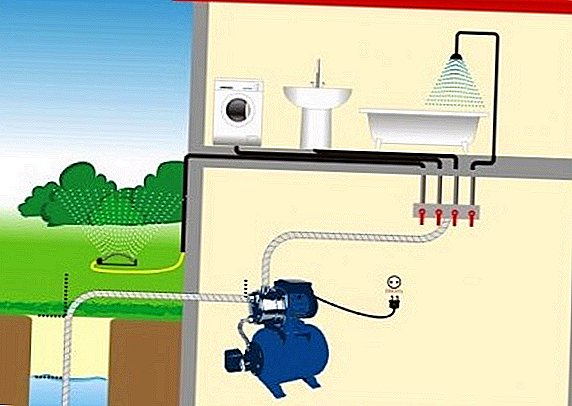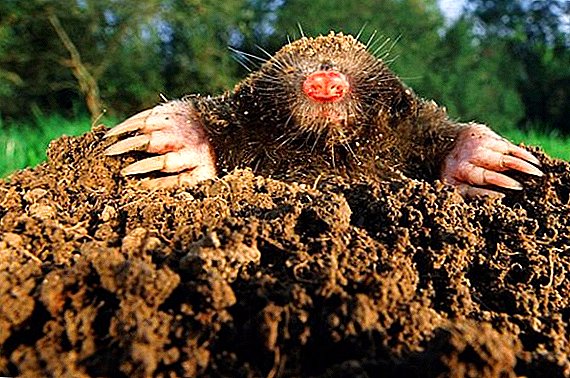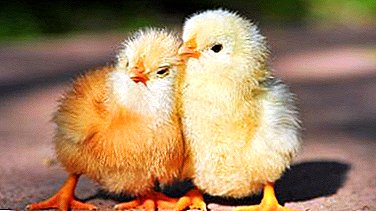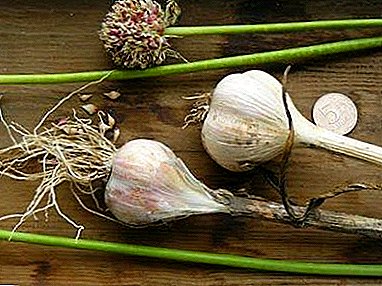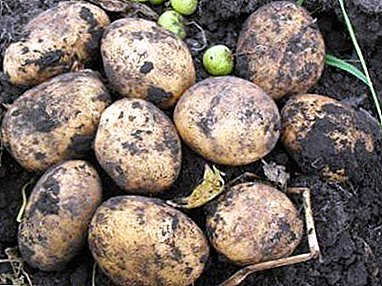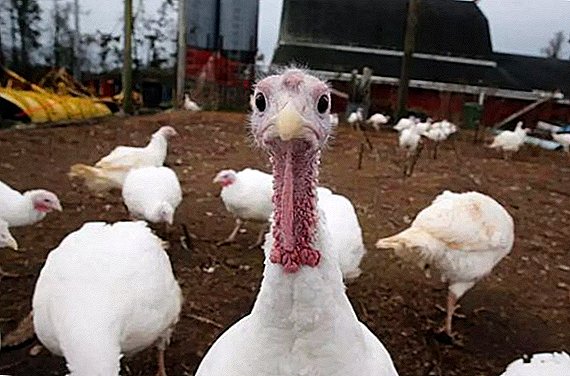 If you are planning turkey breeding and you want the birds to be healthy and productive, you need to take care of the comfort of the birds: for this you need to build a turkey-hen. It’s not difficult to build it with your own hands, if you think over all the design features, the interior arrangement, the choice of a place to build. We will describe all these nuances in our article.
If you are planning turkey breeding and you want the birds to be healthy and productive, you need to take care of the comfort of the birds: for this you need to build a turkey-hen. It’s not difficult to build it with your own hands, if you think over all the design features, the interior arrangement, the choice of a place to build. We will describe all these nuances in our article.
Turkey requirements
Requirements for turkey breeders will depend on such factors:
- how many birds you plan to keep;
- what breed to breed;
- what region is your farm (depends on the quality of the insulation of the room and walking yard).
Learn how to keep Uzbek fawn, black Tikhoretsk, white wide-chested, bronze wide-chested turkeys.
But in general, the following should be considered:
- Each adult should be about one square meter. Chicks in this area can accommodate 5 pieces.
- In the house it is necessary to maintain a comfortable temperature all year round.
- Turkey should be divided into several compartments: for the young with hens and for the rest of the population.
- The walls must be insulated, all the gaps are sealed so that there are no drafts.
- The room for turkeys should be dry.
- So that the air does not stagnate in the turkey, good ventilation is necessary.
- Near the house should be a comfortable walking yard.
 With a small population of turkeys can be kept in a common house
With a small population of turkeys can be kept in a common house
In view of the above, a place should be selected for future construction.
Did you know? In turkeys in a fight there is a rule: do not hit a dead man. If the enemy lay down on the ground and stretched his neck, then he is safe.
Choosing a place for construction
If possible, the building plot should correspond to the following points:
- be on a hill or in an area where there is no groundwater;
- well shined with sunlight;
- to be spacious so that both the house and the walking yard fit;
- located away from other buildings so that the bird does not bother.
 If there is no natural shadowing on the walk, then it is worth worrying about artificial
If there is no natural shadowing on the walk, then it is worth worrying about artificial
Draw up drawings
Having chosen a place for construction, it is necessary to execute the drawing of the future structure. If you make the right measurements and careful calculations, it will be easier to imagine the type of construction. This will help to more accurately calculate the amount of building materials. It will not hurt to think over for what purposes you plan to keep turkeys. If the meat, the design of the turkey will look different than the one in which the hens will live.
Learn how to grow turkey poults in an incubator, what should be the temperature regime for poults, how to make a brooder for poults with your own hands, how much the turkey and adult turkey weigh.
For poults
Let us give an example of a turkey breeder drawing, in which you can keep 30 chicks. Based on the data presented, it will be possible to easily calculate the dimensions of the building for a different number of birds.
 Side view
Side view  Front view
Front view  View from above
View from above
For adults
An example of drawing a turkey-dog on thirty adults.

The figure shows that there is a vestibule in front of the main room of the house. It is also present in the drawing of a turkey hen for chicks. This is some kind of ancillary room, which must necessarily be no matter what kind of birds you hold. Its purpose is to prevent cold frosty air in the wintertime from entering the house. This space can be used in different ways. But its size is not worth saving.
Check out home broiler chicken recommendations.
Build a turkey hen
After completing all the calculations, you can proceed to construction. The stages are similar to the construction of any outbuildings, the only difference is in the internal works.
Necessary materials
First, we stock up on the necessary materials and tools:
- wood for walls;
- formwork board with a thickness of 20 mm;
- timber on the frame with a minimum thickness of 50 mm;
- roof beam;
- timber for window frames;
- perch for roost;
- floor boards;
 Timber when choosing should be inspected in detail for the presence of rot and pests
Timber when choosing should be inspected in detail for the presence of rot and pests
- gravel or river sand;
- material for nests (timber, plywood or wooden boxes);
- insulation (minvata);
- steam and waterproofing material;
- tile;
- steel bar 8-12 mm for reinforcement;
- wire;
- cement;
Learn how to build a chicken house, a chicken coop, a duckling, a barn, a sheep house, a goat barn.
- coarse sand;
- gravel;
- metal corners;
- self-tapping screws;
- nails;
- wire;
- pipes for ventilation;
- ventilation grates;
- fan;
 Mounting the vent pipe
Mounting the vent pipe
- lamps for lighting and heating;
- polyurethane foam;
- roulette;
- Master OK;
- drill;
- saw;
- screwdriver;
- Bulgarian;
- hammer.
Did you know? About 3,500 feathers grow on mature turkey.
Building
Having prepared building materials and tools, you can start building a turkey breeder.
Foundation laying
The construction of any building begins with the foundation. For the house is suitable strip foundation - a kind of closed loop, obtained from reinforced concrete. External and internal walls of the building are installed on this lane.
 The type of foundation to be installed depends on the place of construction; it cannot be installed in seismic zone, on subsiding soils, with a high level of groundwater.
The type of foundation to be installed depends on the place of construction; it cannot be installed in seismic zone, on subsiding soils, with a high level of groundwater.
To make this foundation, it is necessary to dig a trench about half a meter wide. The depth depends on the type of soil in your area. Below we give the table for the depth of the shallow-depth ribbon foundation, it takes into account the type of soil and its freezing.
| Depth of soil freezing, m | Depth of the foundation, m | |
| Weakly ground | Ground soil, hard rock | |
| more than 2.5 | - | 1,5 |
| 1,5-2,5 | 3.0 and more | 1,0 |
| 1,0-1,5 | 2,0-3,0 | 0,8 |
| less than 1.0 | less than 2.0 | 0,5 |
The table shows the minimum depth for this type of foundation. The shallow foundation, although economical, is not considered the most durable, it is better to make it deep. It is made below the depth of soil freezing by 10-20 cm:
- Having determined the depth of the foundation, dig a trench, pre-marking the site with a peg and twine. Mark the outer contour first, then the inner one.
- Dug a trench, check its walls for verticality, and the foundation for horizontal position using a plumb line and level.
- Place a layer of gravel or river sand 15 cm thick on the bottom of the trench. Lay waterproofing material on top.
- Put the formwork, securely backing it with struts. It should be installed so that it rises 30 cm above the ground. Boards for it should be clean, polished and moistened with water.
- Check the level of the boards with a plumb line.
- Put the rebar in the trench. It is attached to the formwork and connected to each other with wire.
- Fill the trench with concrete (cement, coarse sand, gravel in proportions of 1: 2: 2.5). It is poured gradually, in layers. In order not to form voids, the mixture is compacted with a wooden bar. Align the last layer with a trowel. Dries concrete a few days.
- After drying, fill with a layer of bitumen and lay the boards, after removing the formwork.
 Bitumen performs the function of waterproofing
Bitumen performs the function of waterproofing
Important! To make the mortar quicker and not crack, sprinkle cement over the sieve through a sieve.
Floor
Semi need to pay maximum attention, as the birds walk on it all day: it should be smooth, smooth, warm. It is advisable to make it so that it rises above the ground by not less than 20 cm, and in a severe climate - by all 40 cm.
It is better to make it out of wood, since the concrete is strongly cooled in cold weather. Under the boards it is necessary to lay a waterproofing material, and fill all gaps in the floor with sealant. The boards will be covered with a layer of dry grass or straw.
 Particular attention should be attached protective wood processing
Particular attention should be attached protective wood processing
Walls
It is best to build walls in a frame way. Installation of the frame is carried out with the help of metal corners and screws:
- Lay bearing beams on the foundation.
- Mount the lag on them.
- Attach vertical beams to it, exposing them at a certain distance.
- Connect their upper lag.
- Beam sheathe on the outside with a towel.
- On the inside, install insulation (mineral wool or ecological wool).
- On top of the insulation, nail the inner layer of the chest.
- So that bacteria and microbes do not multiply, cover the inner surface of the walls with lime mortar.
 Installation of frame walls
Installation of frame wallsImportant! Installation of walls should be carried out taking into account the holes for windows and manholes. It is advisable to arrange them one below the other.
Roof
The roof can be both single and dual slope. If performed in the latter version, it is necessary to equip the attic and cover it with straw. It is also good to insulate the ceiling, so if you do not want to create a lot of trouble for yourself, you can perform a roof of a lean-to, without an attic. In this case, you will need only the insulation of the ceiling.
If you build a roof shed, the length of the frame beam walls should not be the same. It is necessary that the back wall is lower than the front, but the side walls must be bevelled at an appropriate angle:
- Having completed the frame accordingly, install two truss legs above the side walls. Attach them to the logs with the help of corners.
- Place the remaining truss feet over the racks. Attach them also with the help of corners and screws.
- Align the edges of the rafters, cut off the excess.
- We lay sheets of plywood on top, on top of them - vapor barrier material and insulation.
- From above you can cover again with plywood or crate from boards.
- The last layer is tile.
 Shed roof installation
Shed roof installationWindows, doors
For the normal development of young need a light day at 16-17 hours. Adult birds will need 13 hours, therefore it is necessary to install windows on the sunny sides of the turkey-hen (east, south) in order for the natural lighting of the room to be as long as possible.
The size of windows in 50 * 50 cm will be quite enough. But the number and location of them must be calculated. To do this, try to imagine how the sun's rays, falling into the windows, illuminate all corners of the room. It is necessary to achieve such an arrangement or the number of windows so that there are no dark corners in the house.
Learn about the features of lighting, heating, ventilation, the use of fermentation litter, the construction of water bowls and feeders, perches and nests in the hen house.
Under the windows must be placed Lazy. This will be their optimal location, as in this case there will be no drafts. The size of the manhole must be made on the basis of the dimensions of the turkey. Windows, doors, manholes should be made double, and the gap to blow foam.
 The size of the manhole should correspond to the size of a large turkey
The size of the manhole should correspond to the size of a large turkey
Interior arrangement
When the poultry house box is erected, you can proceed to its interior decoration. Here it is necessary to arrange perches, nests, drinking bowls, feeders, install heating and ventilation, and also divide the internal space into compartments so that nobody bothers the layers.
Check out the list of breeds of turkeys for home breeding.
Lighting
Natural light is not enough to provide the required duration of daylight, and in winter, the day is very short, so you need to think about additional lighting in the turkey. To light the house, it will be enough ordinary incandescent bulbs in 60 watts. If desired, you can replace them with LED corresponding power.
The lighting features of the house are:
- Lamps should be installed so that each square meter of area receives light in 5-7 W;
- lighting should not be constant. It should be turned on and off from 6 in the morning until the full dawn, from the moment it begins to get dark, and until 7 in the evening;
- in the daytime you can do without the light, if sunny weather.
 Light is recommended to be included at the beginning of the spring to increase turkey egg production.
Light is recommended to be included at the beginning of the spring to increase turkey egg production.
Ventilation
It is necessary so that the air in the turkey will not stagnate, no harmful gases accumulate. Also, ventilation helps regulate the indoor climate. For a comfortable living turkey you need about 4-5 cubic meters per hour per kilogram of bird weight of fresh air.
Learn how to distinguish poults by gender.
It is possible to install a supply and exhaust system or mechanical ventilation. In both cases, sewage plastic pipes 200 mm in diameter are needed. One is installed above the perches, close to the ceiling, the other - in the far corner, near the floor.
For the mechanical system will need to install a fan in the pipe. You can simplify the design, making the box 25 * 25 cm with a flap, inside it a fan. It is mounted on the ceiling.
 Installation of forced ventilation
Installation of forced ventilation
Heating
Heating is necessary during the cold season. You can heat the turkey with infrared lamps. If the room is too large, then it is better to heat it with air heaters. You can stretch film heaters over the ceiling. This method of heating will be more economical.
To reduce heat loss through the floor, it is covered with straw, hay, sawdust. The thickness of the layer should be at least 10 centimeters. The layer change should be carried out constantly (about once a month).
Perches
Perches need for rest and overnight stay of birds. It is best to install the turkey in the warmest place at the back wall. A perch can be used as a perch. It must be smooth, so that the bird does not hurt. It is most convenient to install poles at different levels (pyramid).
The lower pole should be at a height of 80 cm from the floor, and the top one should be at a height of 1.5 meters from the floor. The length of the perch should be made such that one individual has at least half a meter of pole.

Important! If you want to facilitate cleaning the room under the perches, install wooden pallets. They will collect the excrement and feathers of birds.
Nest
Nests are very necessary for layers, they will feel protected in them during the laying period. If the number of birds is large and the space in the house is limited, build multi-storey nests.
You can make them from bars and plywood, as long as the material is smooth. A ladder should be attached to such a nest so that it is more convenient to collect eggs.
If you do not want extra trouble, then you can use ordinary wooden boxes for the nests, just pick them up to match the size of the bird.
 If you want to plant a hen - take care of a well-equipped separate nest in advance.
If you want to plant a hen - take care of a well-equipped separate nest in advance.
Feeders and drinkers
These elements of the internal arrangement of the house can be bought in the store or made independently. It’s quite simple to build them with your own hands; there is no need to purchase materials specifically.
Learn more about how to make drinkers for turkeys and feeders from PVC pipes.
Here are the options:
- One of the easiest options for troughs and drinkers is a bowl and a can placed in it at the neck of the bank. This method is best suited for turkey poults.
- You can use the usual troughs, and for each type of feed should have its own capacity. Trough with dry food is better to hang at the level of the back of a bird. Containers with mineral feed should be installed at a height of 40 cm from the floor.
- Drinking bowls should be hung at the neck of birds and, so that birds do not climb into them with their paws, close with a grid with a large cage into which the turkey’s head will squeeze.
- Drinking bowls and feeders should be constantly washed and disinfected (twice a day).

We create the open-air cage for walking
For a bird to warm up, breathe in fresh air and soak up the sun, it needs a patio for walking. Attach it to the south side of the turkey. So that the turkey could quietly leave the house, in the wall adjacent to the courtyard, make a hole with a door.
The courtyard itself is fenced with a frame of logs with a grid stretched between them, and the roof is also made. The yard area must be such that one turkey has a square meter of its own territory.
Learn how to walk for chickens.
Having calculated the dimensions of the free space, start the construction of the structure:
- From a bar 50 * 50 mm build the frame of the courtyard.
- In the front wall it is desirable to make the door.
- Stretch a fine, solid mesh between the bars. Fasten it to the tree with screws.
 It should be noted that in the warm season walking the bird is extremely important - at the expense of green fodder feed costs will be significantly reduced
It should be noted that in the warm season walking the bird is extremely important - at the expense of green fodder feed costs will be significantly reduced
If the winters in your region are not severe, then birds can walk in such a courtyard all year round. But before you let the turkey out for a walk, you will need to clear the yard from the snow and cover with a thick layer of straw. It is best to make a walking yard portable, this will allow to move it around the yard and not only so that in summer time the bird could graze on fresh grass.
The structure of the turkey-hen can seem troublesome and costly. But if you are going to breed birds for more than one year, the construction made to last will last you a long time. And with the proper arrangement of the premises, bird care will be fairly simple, and their productivity will be high, so that all costs will pay off quickly enough.
Tips for arranging a turkeybird: video
Where to keep turkeys: reviews

We have a paved turkey floor with a deep bedding 25-30 cm thick. The windows are double. Equipped exhaust ventilation. It provides the necessary air supply and still made the hood in the lower area of the house.
There are perches of planed bars, under them litter boxes. For green fodder we have feeders of metal mesh. Drink from bowls on wooden stands.
There are electric lights and windows on the east side.




